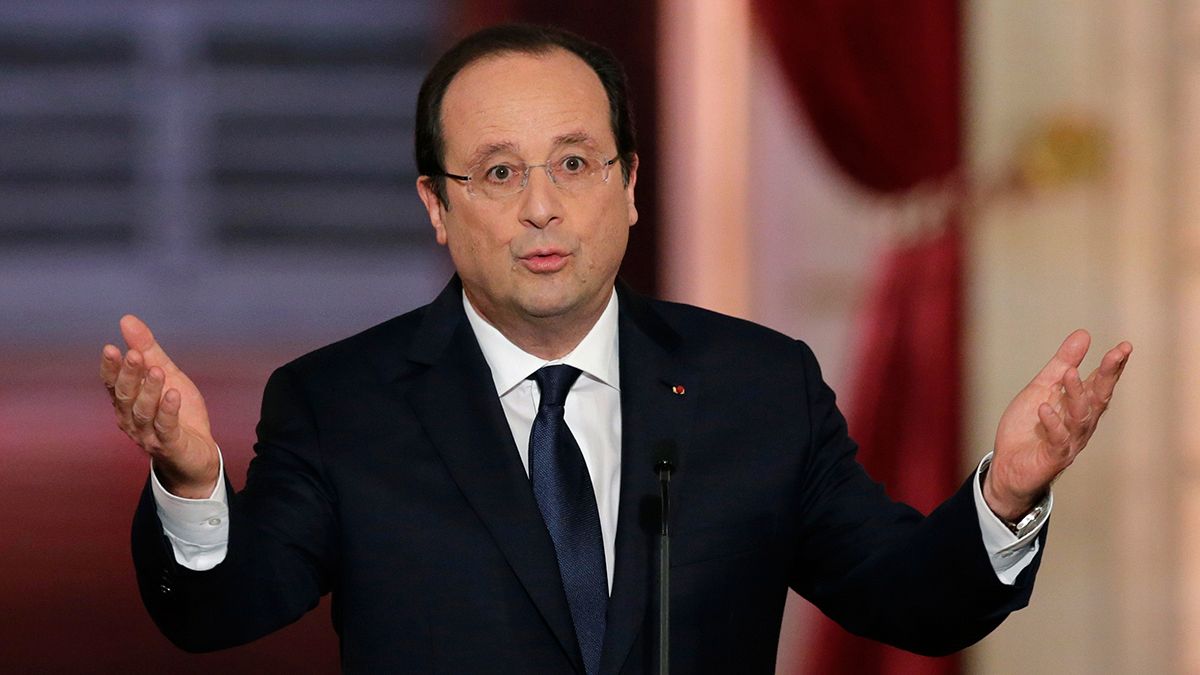“Everyone comes across tests in their private life. But I have one principal – that private affairs remain private.”
This was French President François Hollande’s response to the, perhaps, inevitable question:
“Is Valérie Trierweiler still the ‘First Lady’ of France?”
Seemingly prepared for the question, following several days of public and media speculation over whether or not he had had an affair, Hollande responded concisely:
“Everyone comes across tests in their private life. But I have one principal – that private affairs remain private. This is not the time or the place… I won’t respond to any question on that subject today.”
The audience of 500 journalists in attendance as Hollande presented his strategy for the economy was momentarily silenced. Questions continued, in a much more ‘economic’ vein.
In his opening words, Hollande described the economic crisis as “long and profound”, before moving onto discuss the need for corporate tax to be simplified.
“It is possible to make savings while preserving the country’s social model,” he continued, citing the example of the countries in northern Europe.
In what he referred to as a “responsibility pact”, Hollande proposed lowering social charges for businesses in exchange for hiring. This, he said, was designed to bring people together to focus on employment, and called it “the biggest compromise in decades.”
“We haven’t yet won the battle on employment,” he declared.
He said the “pact” would be negotiated with trade unions and employers’ groups, defending it by saying “It is now that France must rebound to forge ahead.”
Turning to foreign policy and particularly the French presence in parts of Africa, Hollande said the campaign in Mali had been a “victory against terrorism.”
Hollande discussed French spending and an intention to cut public spending by a further €50 billion by 2017. This, he announced, is possible due to the creation of a new strategic council for public spending.
He said the state will set the standard, but stressed that it “cannot be alone in this process.” He justified his comment by saying the state only accounts for one third of public spending, while the rest goes towards the authorities and social protection.
During the speech, he described his pride in Airbus, a Franco-German company. Staying with Germany, Hollande expressed his desire for a Franco-German partnership “which supports European defence” and sought a tax convergence with the neighbouring nation.
The overwhelming theme of the speech was the need for reform in France. In addition to proposed tax reforms, President Hollande said he would introduce social reforms “for the young people”. At the same time, he pledged to protect the country’s social security system.
Education reforms were also on the agenda. Hollande discussed stabilising schools in poorer areas and introducing new measures to improve working conditions for teachers and lecturers.
“French schools are the French Republic,” he stated.
(function(d, s, id) { var js, fjs = d.getElementsByTagName(s)[0]; if (d.getElementById(id)) return; js = d.createElement(s); js.id = id; js.src = "//connect.facebook.net/fr_FR/all.js#xfbml=1"; fjs.parentNode.insertBefore(js, fjs); }(document, 'script', 'facebook-jssdk'));Publication de euronews.
